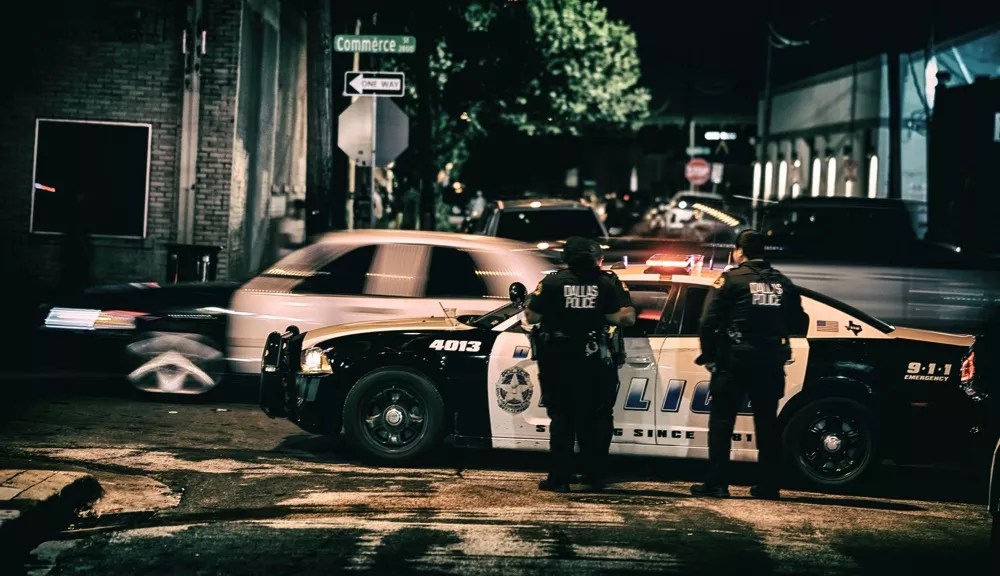
Mike Brooks

Audio By Carbonatix
Staring down the barrel of the gun, the Dallas Police Department has not only met but also exceeded its recruitment goals. The feat, celebrated by the city’s council, was made possible through a strategic blitz hiring effort with lowered minimum application requirements and annual bonus incentives.
Between September 2024 and October 2025, the department was tasked with hiring 300 new officers; they welcomed an additional 30 more than needed, according to Jordan Colunga, deputy chief of police, in the Tuesday Public Safety Committee briefing. DPD has made a concerted effort to recruit, touring across the country to poach officers from other cities, rolling out a high-paying referral program, and honing the department’s brand.
“DPD has a lot to offer,” Colunga said. “This is the big league. This isn’t JV. This is varsity ball here. If you want to come and be a cop and you want to learn how to be a cop, this is the place to come. I think as we continue to push that and we sell our narrative of who we are, we sell our brand as far as who we are, people want to be a part of that.”
A controversial proposition for an amendment to the city charter that narrowly passed in the November 2024 election requires the city to increase its total force to 4,000. A separate proposition allows residents to sue the city for failing to comply with the city charter. Dallas HERO, a public safety-oriented nonprofit instrumental in the passage of both propositions, has threatened to sue the city unless it meets the officer metric goals within the next two years. Since then, the city has faced a steep uphill battle to recruit and retain new officers as fast as possible, pouring resources into attracting potential officers to Big D. In their efforts, the department says they visited 38 states, 94 schools and colleges and attended 247 community and career events.
In September, the department celebrated the second-largest graduating officer class in history, with 76 new officers assigned. That is double the number of new officers who graduated into the force in November 2024. But it’s not just recruitment that’s up. Applications also increased 52% in the last fiscal year. Over the summer, the department axed its college degree requirements, significantly widening its applicant pool. As more officers are sworn in, fewer officers are leaving the force, with attrition reducing year-over-year.
“We’re creating a culture that our officers can go out there and catch bad guys and help make this the safest city in America,” said Colunga. “That’s from the top down, as we keep pushing that, people want to stay.”
Police recruitment and retention have long been a challenge for a revolving door of city council members and police chiefs alike; therefore, the current committee was eager to congratulate the department.
“We’re always really pushing and pressing on you to continue doing the good work you are,” said committee Chair Cara Mendelsohn. “But you’ve made some really fundamental changes in how you do recruiting, and it’s paying off, so thank you so much for that hard work.”
Show Them The Money
An effective technique to attract more boys to the blue is to show them the green.
“We did a really neat campaign where our first officer was paid out in mid-summer,” said Colunga. “We got one of those big, giant checks and took a picture and promoted it. After that, I think that really sent the message to the officers that this is real money that could come to you if you participate. Now we’re seeing the fruits of that labor.”
In October, the city says it increased the starting pay to $81,232, roughly a $6,000 increase, to increase recruitment efforts. The department also launched a referral program last year. Officers who refer a candidate are eligible to receive up to $5,000 in phased bonuses as the referred candidate achieves milestones. If a candidate remains on the force for three years, the referrer receives a $3,000 bonus. There is no limit to the number of candidates that an officer can refer.
Referrals have reportedly doubled since the program’s launch.
“I’m very happy,” said Mendelsohn. “We’ve only had the incentive program in place for one year. I think as time goes on, this is going to really show out, especially when those three-year checks start going out. It’s going to make people really, really take notice.”
Where Do You Put 76 Recruits?
Like public safety affairs, increased recruitment is a double-edged sword. With more students, you have to find more classrooms, and the department and the city are in yet another years-long battle to solve that issue.
“I want to just congratulate and applaud DPD for exceeding their hiring goals,” said Mayor Pro Tem Jesse Moreno. “I know that there were some members on council who were trying to go through a higher threshold, and I think this proves that we can achieve those numbers. I do know that one of the concerns was the lack of classroom space, so help me understand how we’re able to handle 76 recruits at one given time.”
A law enforcement training center has been scheduled to be built on the University of North Texas Dallas campus since 2021, but not without significant community pushback and a few plan changes. City Manager Kimberly Bizor Tolbert is expected to finalize the deal this week, following the lease agreement signed earlier this year. However, the facility won’t open until 2028. Still, Assistant Chief of Police Israel Herrera says it’s a good problem to have if it means retention is up.
“What we’re having to do is to get creative with the spaces that we do have,” said Herrera. “… We’re getting really creative. We’re not quite busting out, but we’re getting close, and that’s a good problem.”